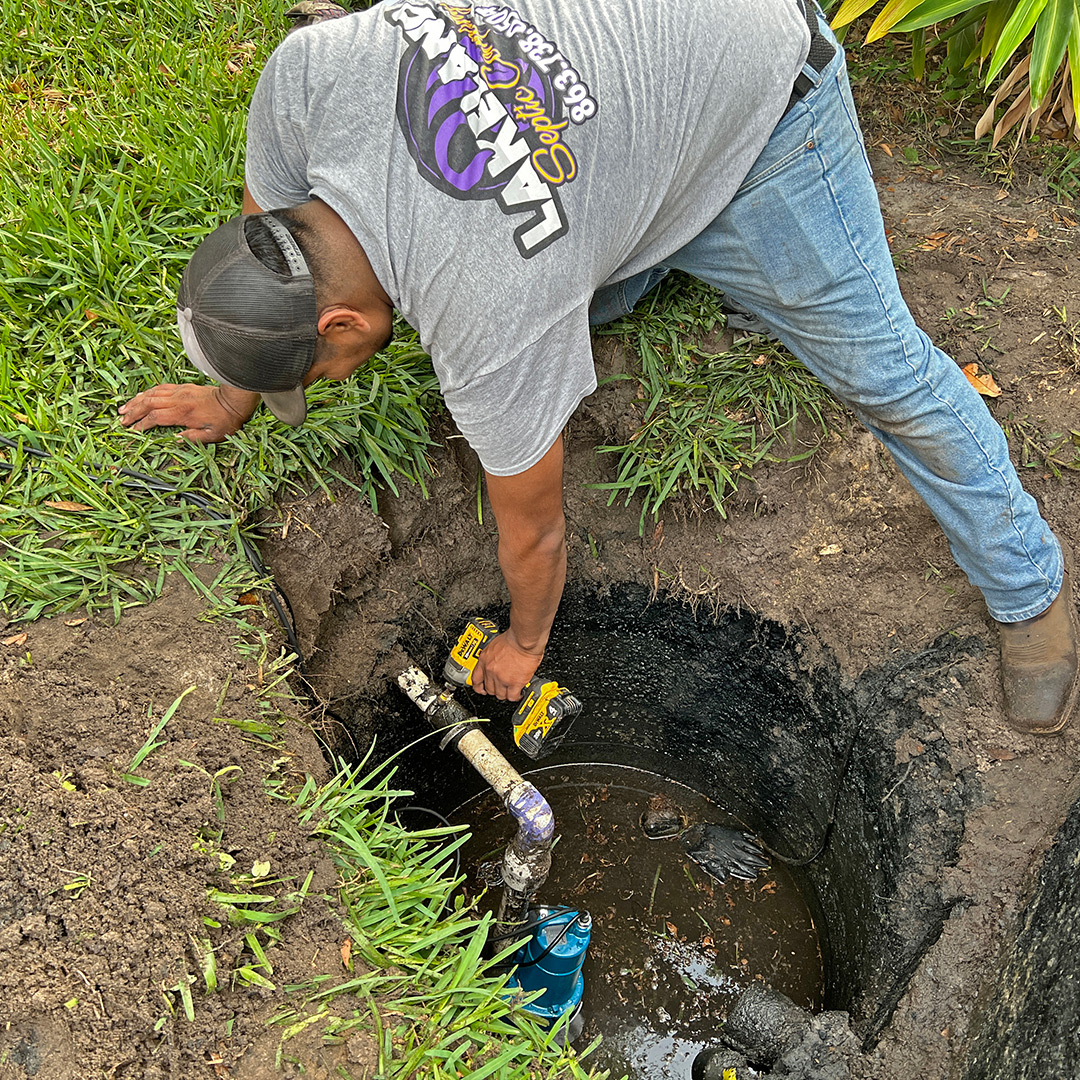What Is a Septic Tank Grease Trap?
If you’re like most homeowners in the Lakeland area with a septic system, you have a grease trap as part of that system, and everyone else has no idea why it’s there or what it does. Don’t worry; we can give you a crash course in grease traps. So, let’s answer the question: What is a Septic Grease Trap?
 What is a Grease Trap, and What Does It Do?
What is a Grease Trap, and What Does It Do?
A grease trap is a small underground tank positioned between your home’s drain line and the septic tank. It acts as a filtration system designed to seize grease, oil, and fat (also known as FOG) before entering the septic tank.
How a Grease Trap Works
Wastewater flows through your septic system’s grease trap, where cooler temperatures cause FOG to solidify and float to the trap’s surface. Meanwhile, the remaining wastewater, sans the FOG, flows through an outlet pipe and continues its gross journey to the septic tank for treatment.
Why Are Grease Traps Important for Septic Systems?
FOG can wreak havoc on your septic system in a few ways:
Clogged Drain Lines
FOG buildup can do real damage by solidifying in your pipes, leading to slow drains and, eventually, complete blockages, resulting in backed-up toilets, bathtubs, sinks, and showers.
Overwhelmed Septic Tank Bacteria
Your septic tank’s healthy (or good) bacteria break down waste. An inrush of FOG disrupts this balance, inhibiting the septic tank’s ability to function well.
Damaged Drainfield
A clogged septic tank can lead to untreated wastewater overflowing into the drainfield. This effluent can pollute the soil and groundwater and even cause the drainfield to fail.
The Importance of Regular Septic Service and Your Grease Trap
Like any filtration system, grease traps need regular cleaning to maintain effectiveness. A qualified septic service company can pump out the accumulated FOG, ensuring your grease trap continues to function correctly.
Here’s what a qualified septic service professional can do for your grease trap:
Inspection
A septic service can assess the condition of your grease trap and identify any potential problems.
Pumping
A septic service can safely and efficiently remove the accumulated FOG.
Disposal
A septic service will ensure the FOG is disposed of according to local regulations.

How Often Should You Have Your Grease Trap Serviced?
The pumping frequency depends on several factors, including the size of your grease trap, the amount of FOG produced in your household, and the size of your septic tank. An experienced septic service company can advise you on a recommended schedule for your specific situation.
In Conclusion
Installing and maintaining a grease trap is your investment in your septic system’s health. Regular service by a qualified septic professional ensures your grease trap functions optimally, preventing costly clogs and system failures. So, don’t let FOG be a foe for your septic system – make grease trap maintenance a part of your septic system care routine!
Lakeland Septic Knows Grease Traps
Don’t ignore your septic system’s grease trap and court disaster. If you reside in the Lakeland or Polk County areas, call us now at 863-738-0504 or fill out our online contact form. One of our septic experts will gladly discuss servicing your grease trap.


